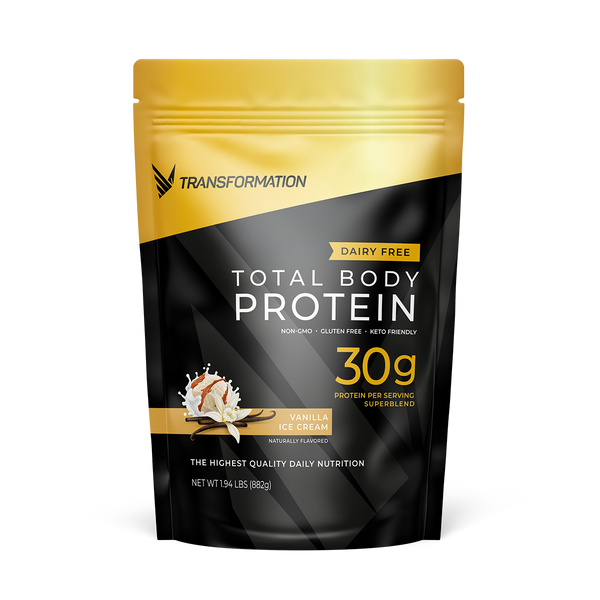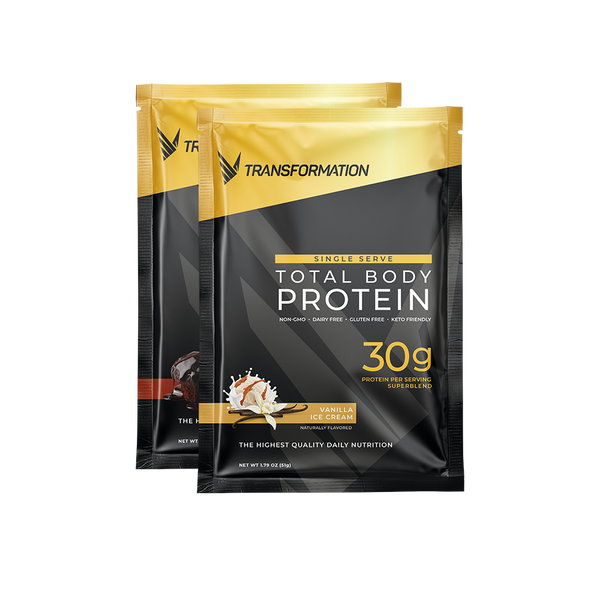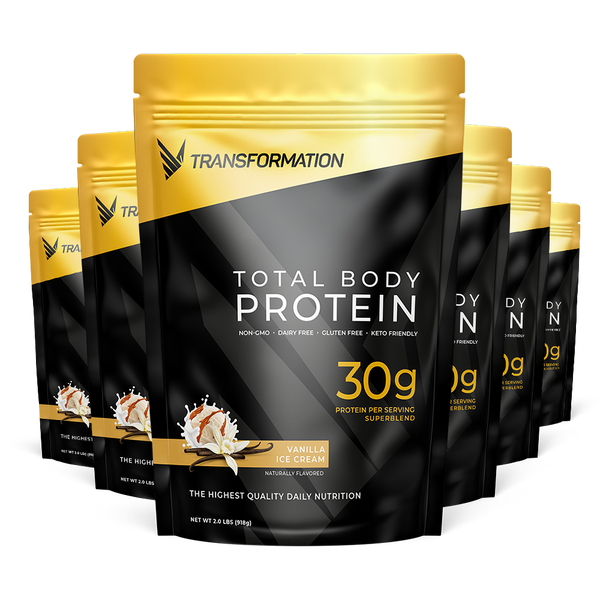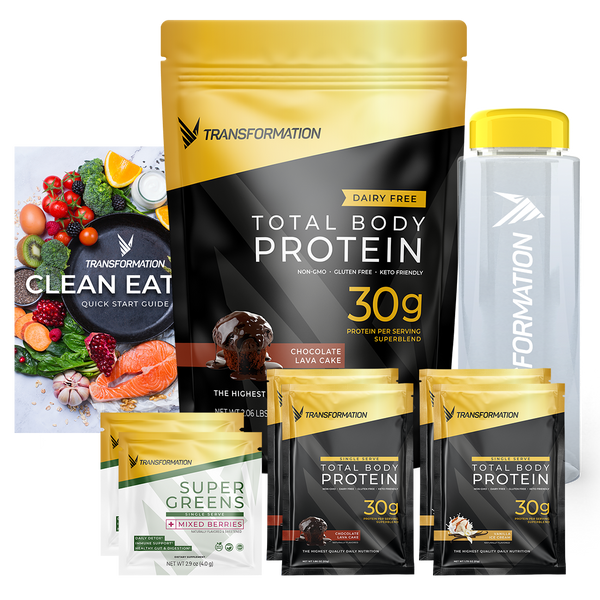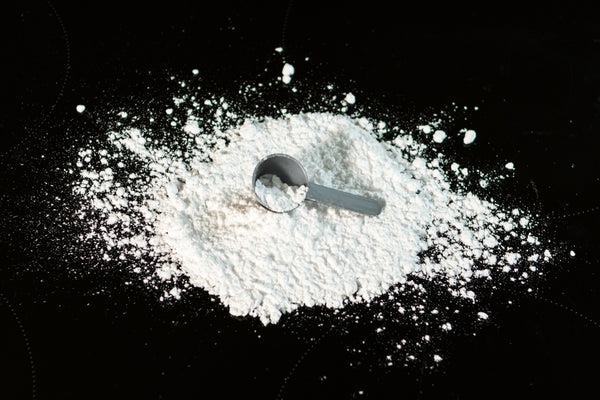
Understanding Lactose in Supplements: Does Whey Protein Have Lactose?
Wondering about lactose in your whey protein? Let's tackle the main question: "Does whey protein contain lactose?" Absolutely, it does. However, the quantity differs based on whether it's whey concentrate, isolate, or hydrolysate.
If you're lactose intolerant or just watching your dietary choices, our guide breaks down the lactose content in whey protein. Let's get started!
Key takeaways
-
Whey protein comes in various types, each with different lactose levels. Whey concentrate tops the charts in lactose content, whereas whey isolate and hydrolysate have considerably lower amounts. This makes the latter options more suitable for those dealing with lactose intolerance.
-
If you're lactose intolerant, digesting whey protein can be a challenge. This is because your body might not produce sufficient lactase, the enzyme needed to break down lactose. As a result, consuming whey protein with lactose can lead to digestive issues.
-
There are lactose-free protein alternatives, such as egg white protein and plant-based proteins (pea, pumpkin seed, soy), and reading supplement labels is crucial for lactose-intolerant individuals to avoid products that might trigger symptoms.
Lactose and whey protein

Whey protein, a high-quality protein packed with all nine essential amino acids, originates from cow's milk in the cheese-making process. It inherently contains lactose, a sugar found in milk.
If you're lactose intolerant, consuming lactose-rich foods can lead to digestive discomfort due to insufficient lactase production, the enzyme required for lactose breakdown.
Since whey protein comes from milk, its lactose content is a natural outcome. The amount of lactose in whey protein can vary depending on the whey protein used.
This variability might impact those with lactose intolerance in different ways, making it challenging for them to include whey protein in their diet.
Lactose in different types of whey protein

Whey protein powder has three primary forms: whey concentrate, isolate, and hydrolysate. Each form offers unique benefits and suits different dietary preferences and fitness goals. Their lactose levels vary, influencing their tolerance among individuals with lactose intolerance.
If you're lactose-sensitive, whey concentrate might not be the best option due to its higher lactose content. Opting for whey isolate or hydrolysate is a smarter move as they contain considerably less lactose. Whey protein hydrolysate, having the least amount of lactose, is the most appropriate choice for those with lactose intolerance. Its low lactose content makes it a favorable option for those who want to consume whey protein without experiencing discomfort.
How lactose intolerance affects whey protein consumption
About 65% of people worldwide struggle with lactose intolerance, a digestive issue where the body struggles to break down lactose due to insufficient production of the enzyme lactase.
The symptoms of lactose intolerance can be particularly discomforting when consuming whey protein. This is because the lactose in whey protein is not broken down and passes through the gut undigested, causing symptoms like stomach cramping, bloating, and diarrhea.
The intensity of these symptoms may differ based on an individual's intolerance level and the type of whey protein they choose. Severe lactose intolerance might make any form of whey protein challenging, whereas those with milder intolerance may find whey protein isolate or hydrolysate more manageable. It varies from person to person, impacting how whey protein is tolerated.
The importance of reading labels and understanding ingredients
For those dealing with lactose intolerance, picking the right protein and understanding the components of lactose-free whey protein supplements is essential. Read the labels carefully because the term 'lactose-free' is a voluntary statement, and any reported lactose content must be at least 98.0 percent on a dry basis, according to regulations.
In particular, whey concentrate supplements contain more lactose, whereas whey isolate supplements contain a lower amount of lactose. Understanding this difference is vital for those with lactose intolerance as it helps them avoid products with high lactose content that could trigger their symptoms.
Learning to decipher nutritional labels and understanding the meaning of different ingredients can go a long way in managing lactose intolerance.
Choosing the right protein for lactose intolerant individuals
For a whey choice that's easier on lactose-sensitive stomachs, lean towards isolate and hydrolysate. These protein powders undergo processing to eliminate the majority, if not all, lactose, ensuring smoother digestion.
If you're dealing with lactose intolerance, consider adding lactase enzyme supplements to your strategy. They facilitate lactose digestion, making it more manageable to enjoy products like whey protein.
Alternatives to whey protein
While whey protein remains a popular choice, especially among fitness enthusiasts, it's essential to recognize the diverse landscape of protein supplements available. Lactose-intolerant individuals have a plethora of alternatives to explore.
Egg white protein is a great option, providing a clean, versatile, and lactose-friendly alternative to traditional whey protein supplements. Its complete amino acid profile ensures a satisfying protein experience, easy digestion, and high bioavailability for optimal muscle support.
Another great option is pea protein, a high-quality, lactose-free option with easy digestibility. Ideal for those with dairy allergies or sensitivities, pea protein offers a complete amino acid profile, making it an excellent choice for muscle support and overall nutrition. Beyond its nutritional benefits, pea protein's rich texture and versatility make it a standout plant-based alternative that doesn't compromise on taste or quality.
Pumpkin seed protein also provides a lactose-free option without sacrificing nutritional benefits. Apart from offering a complete amino acid profile, it brings additional health perks such as omega-3 fatty acids and antioxidants. This plant-based option stands out as an excellent choice for individuals seeking a lactose-friendly alternative, contributing to muscle support and overall well-being while adding a deliciously distinct flavor profile to your protein regimen.
Ready to explore your protein options? Good news – at Transformation, we blend premium egg white, pea protein, pumpkin seed protein, and collagen peptides to craft Total Body Protein, the ultimate fuel for building lean muscle and promoting healthy fat metabolism.
To wrap up
Though whey protein contains lactose, it's crucial to note that the quantity varies significantly based on the type. Whey protein concentrate has the highest lactose content. Whey protein isolate has significantly less lactose, and hydrolysate has the lowest.
There are many alternatives like egg white protein or plant-based options like pea and pumpkin seed protein for those steering clear of lactose. These alternatives offer an effective protein source for muscle growth and recovery.
Effectively managing lactose intolerance while maintaining a high protein intake boils down to knowledge. Understand the lactose levels in different whey proteins, read labels, and comprehend ingredients.
Frequently Asked Questions
Is whey dairy?
Yes, whey is a dairy product, a protein naturally found in cow's milk.
Does whey protein cause bloating?
Yes, especially for those who are lactose intolerant or have irritable bowel syndrome. The lactose content in whey protein may lead to increased flatulence and discomfort.
Is whey protein OK for lactose intolerant?
Depends on the specific whey type and the severity of your lactose intolerance. If you're only mildly lactose intolerant, you might feel like whey protein isolate is well-tolerated. For those with severe lactose intolerance, digestive discomfort with any type of whey could be a potential concern.
Which protein powder is best for lactose intolerance?
The best protein powders for lactose intolerance include egg white protein, pea protein, pumpkin seed protein and whey isolate or hydrolysate.
Do lactose intolerant people still get protein from milk?
Lactose intolerance does not affect the digestion of proteins in milk, which are broken down by different digestive enzymes in the stomach and small intestine. Therefore, lactose-intolerant people can still get protein from milk while experiencing discomfort.


